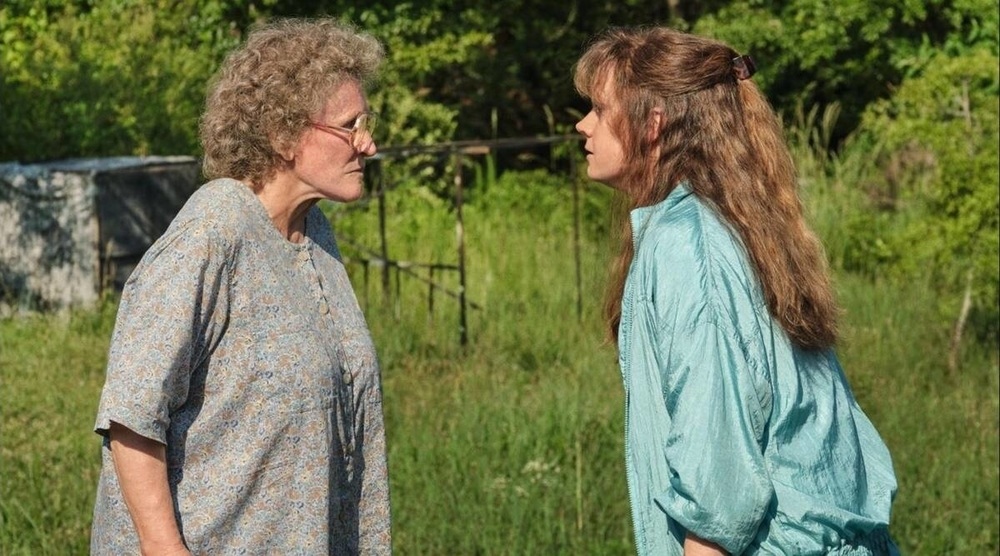Hillbilly Elegy

Glenn Close and Amy Adams star in HILLBILLY ELEGY. (Photo: Netflix)
Most of the backwoods stereotypes about rural Appalachia are reinforced by Hillbilly Elegy, contrary to the intentions of this epic family saga.
Despite top talent on both sides of the camera, this adaptation of J.D. Vance’s memoir from Oscar-winning director Ron Howard manages to whittle down Vance’s coming-of-age story into a shamelessly manipulative mess more likely to elicit anger than sympathy.
In 2011, J.D. (Gabriel Basso) is a Yale law student trying to break free from the poverty and despair that defined his Kentucky upbringing. “I came closer than any of them to something better,” he explains through heavy-handed narration.
But although he’s found a supportive girlfriend (Frieda Pinto) and is on the cusp of a lucrative summer internship, he keeps getting drawn back into crises involving his unstable mother, Bev (Amy Adams), a former nurse whose career was derailed by drug abuse and erratic behavior. His older sister (Haley Bennett) can’t handle the situation alone.
Abundant flashbacks chronicle a younger J.D. (Owen Asztalos) trying to navigate Bev’s downward spiral while finding a calming influence in his Mamaw (Glenn Close), whose words of wisdom are frequently buried beneath insults and regrets from decades of setbacks that have defined their family legacy.
Flawed and conflicted characters are always welcome, but the screenplay by Vanessa Taylor (who co-wrote The Shape of Water) features an undercurrent of emotional dishonesty while keeping moviegoers at a distance.
Hillbilly Elegy paints the entire family as victims of circumstance, with built-in excuses for Bev’s self-perpetuated cycle of addiction and abuse. As J.D. wallows in unfounded guilt, it’s unlikely anyone else will muster a shred of empathy for this unforgivably selfish monster or her enablers. Instead, we wind up feeling nothing at all.
Despite some awkward chronological transitions, the film is technically proficient, immersing us in its mountain setting and exposing the human ugliness beneath the wooded beauty.
Close steals her scenes by fully inhabiting a tough-talking matriarch who claims to treasure family above all, even if she doesn’t know how to express pride over frustration.
Vance should take pride in his true-life rags-to-riches story, reconciling with his past to forge a successful independent future. In a movie overwhelmed by justifying bad behavior, at least some redemption comes off screen.
Rated R, 116 minutes.